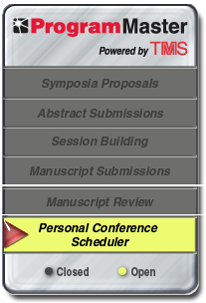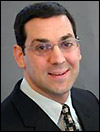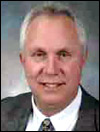

|

| Date: | Monday, March 4, 2013, 2:00 p.m. |
| Location: | Lila Cockrell Theatre, Henry B. Gonzalez Convention Center |
The goal of achieving global sustainability cannot be confined to a group of countries, industries, or sectors
of society. Every potential stakeholder in this future must address their own unique set of challenges to
contribute solutions, while also being cognizant of the ramifications of their actions on the environment,
economy, and social well-being. Materials resource sustainability is the common thread weaving together many
of these ideas and initiatives. Examining important intersections in key sustainability-relevant areas is
the focus of the REWAS 2013 Plenary Session, "Realizing Sustainability."
 |
TODD DINOIA
Technical Director, Habitat R&D, Saint-Gobain High Performance Materials Research and Development Center
Presentation: "Saint-Gobain’s Approach Towards Materials Development for Sustainability in Habitat"
Abstract
Saint-Gobain, the world leader in the habitat and construction markets, designs, manufactures and distributes building materials, providing innovative solutions to meet growing demand in emerging economies, for energy efficiency and for environmental protection. Saint-Gobain’s strategy is to be the reference in the sustainable habitat and construction markets. This means developing construction and renovation solutions to ensure that buildings are energy-efficient, comfortable, healthy and esthetically superior, while at the same time protecting natural resources. A core part of this strategy is a clear focus on innovation to develop materials and products based on sustainable principles that are central to core research platforms and embedded in the innovation process. This talk will highlight features of Saint-Gobain’s R&D approach to the development of sustainable building material, product, and system solutions. Examples of new construction products and their impact on sustainability in the context of energy, environment, health, and comfort in buildings will be shown.
|

 |
BILL BADER
Chief Executive Officer of the International Electronics Manufacturing Initiative (iNEMI)
Presentation: "iNEMI Environmental Thrust; History, Challenges, & Opportunities"
Abstract
iNEMI (International Electronics Manufacturing Initiative) consortium has been creating and exploiting technology roadmaps for the electronics industry for 20 years. It has become recognized as an important tool for defining the "state of the art" in the electronics industry. Additionally, INEMI puts significant focus on identifying key gaps and challenges in emerging and disruptive technologies. From this gap analysis and workshops in areas of focus we define and organize collaborative iNEMI R&D projects. Specific examples will be reviewed that demonstrate how roadmap findings are used to develop industry led programs to close identified technology gaps. One key area of focus for iNEMI for the past 12 years has been driving improvements in materials and products that leads to progress in sustainability. This presentation provides a brief history of iNEMI environmental improvements that have been driven to realization in the past, and a holistic assessment of the roadmap challenges and gaps in electronics sustainability looking to the future. The material will then provide a deeper dive into a set of per competitive collaboration opportunities in the areas of materials, eco- design and sustainability, and recycling and reuse. The presentation will also include a preview of the key findings of the 2013 roadmap including some of the electronics industry paradigm shifts and the key technology developments.
|

 |
S. JULIO FRIEDMANN
Chief Energy Technologist, Lawrence Livermore National Laboratory
Presentation: "Advanced technology and the scope of large-scale sustainability"
Abstract
The extraordinary scale and scope of sustainability, including challenges from climate change to soil and water sustainability, require a focus on solutions that can credibly tackle a major fraction of those challenges. While there are millions of potential technical solutions, including those enable by advanced materials, only those that thrive within the bounds of industrial scaling, land-use limits, and other key concerns can materially improve sustainability. This is particularly true in the energy sector, where large capital requirements and long-lived infrastructure affect the success of commercial innovations. We will discuss a handful of approaches, technologies, and pathways including novel carbon capture materials and devices; advanced manufacturing materials; computationally assisted material discovery; and water treatment.
|

 |
HELGA VANTHOURNOUT
Expert Consultant, McKinsey & Company and the Ellen MacArthur Foundation
Presentation: "Value-in-Use and Beyond—Creating More Value from Scrap"
Abstract
For a variety of reasons, scrap use is gaining importance across a number of industries. It is therefore critical to optimize the management of the full scrap value chain. In this session, we will review the set of measures available to optimize handling and logistics as well downstream scrap recovery. Moreover, we will investigate the application of the value-in-use concept in scrap processing. Value-in-use measures the full economic value of a specific raw material/product relative to a known benchmark or next-best competitive offering—at a specific asset and under defined circumstances. In this session, we will discuss the factors that determine value-in-use and explore the four core elements—modeling, value selling, resourcing, and integrated processes—of a winning value-in-use setup.
|

 |
WILLIAM A. BONKOSKI
GE Water & Process Technologies
Presentation: "Global Trends in Water Treatment Technology & Sustainability"
Abstract
As the world’s population increases with a fixed amount of water available, emphasis must be placed on developing advanced water treatment technologies, so that our precious water resources can be recovered for reuse. While we always will strive to minimize water consumption, we must also seek to extract valuable wastewater components that have sustainable value such as organic contents, which can be converted to recoverable energy. Further, phosphorus and nitrogen may be recovered for beneficial reuse as well. This presentation will speak to new ideas and trends that will impact how water resources will be shared by our ever-increasing population in the future.
|

|